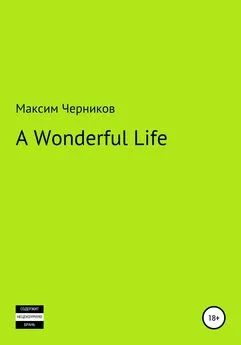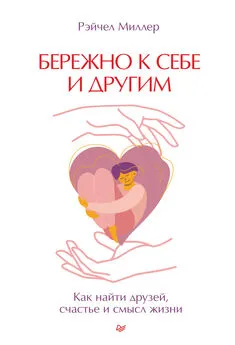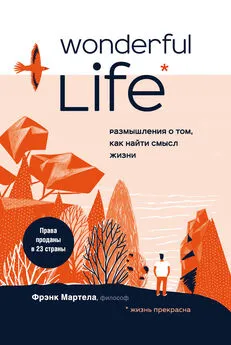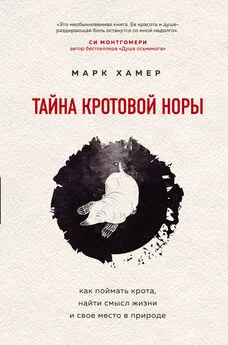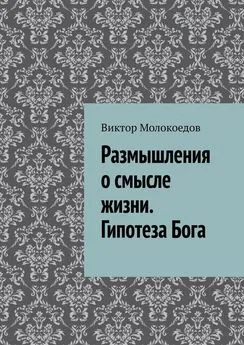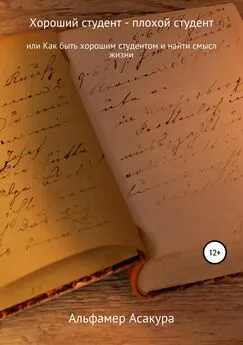Фрэнк Мартела - Wonderful Life. Размышления о том, как найти смысл жизни [litres]
- Название:Wonderful Life. Размышления о том, как найти смысл жизни [litres]
- Автор:
- Жанр:
- Издательство:Литагент 5 редакция «БОМБОРА»
- Год:2021
- Город:Москва
- ISBN:978-5-04-110857-1
- Рейтинг:
- Избранное:Добавить в избранное
-
Отзывы:
-
Ваша оценка:
Фрэнк Мартела - Wonderful Life. Размышления о том, как найти смысл жизни [litres] краткое содержание
Wonderful Life. Размышления о том, как найти смысл жизни [litres] - читать онлайн бесплатно ознакомительный отрывок
Интервал:
Закладка:
95
Telos ( греч . конец, цель) – в древнегреческой философии конечная цель чего-либо; один из четырех основных принципов бытия в философии Аристотеля.
96
Summum bonum ( лат . высшее благо) – Цицерон в своей работе «О высшем благе и высшем зле» писал: «Мы ищем, что является предельным и последним из благ. По мнению всех философов, оно должно быть таким, чтобы все измерялось им, а само оно – ничем вне его».
97
Note that Hochschild argues that this question was asked up to the twentieth century, while here I am arguing that meaning of life started to replace it in the nineteenth century. Joshua P. Hochschild, “What ‘the Meaning of Life’ Replaced,” https://thevirtuebl0g.c0m/2017/12/18/what-the-meaning-of-life-replaced/.
98
Пер. Е. Цветковой.
99
Название переводится с латыни как «Перекроенный портной».
100
Ральф Уолдо Эмерсон – американский эссеист, поэт, философ, пастор, лектор, общественный деятель.
101
Герман Мельвилль – классик американской литературы, писатель-романтик, поэт и моряк, автор классического романа «Моби Дик».
102
Уолт Уитмен – американский поэт и публицист, реформатор американской поэзии.
103
See the introduction by Kerry McSweeney and Peter Sabor in Carlyle, Sartor Resartus.
104
The philosopher Wendell O’Brien argues that Carlyle’s book is the earliest known piece of literature where the phrase “meaning of life” occurs. Oxford English Dictionary similarly gives Carlyle’s book as the earliest example of the phrase. My own searches and consultations with a few specialists have not been able to find any previous occasion when somebody would have used the phrase “meaning of life.” I would love to be proven wrong, but at this point I propose that the phrase was probably coined in English by Thomas Carlyle in 1833–1834, inspired by German romantics using the phrase “der Sinn des Lebens” a few decades earlier. See Wendell O’Brien, “The Meaning of Life: Early Continental and Analytic Perspectives,” in Internet Encyclopedia of Philosophy (2014). Retrieved from http://www.iep.utm.edu/mean-ear/.
105
Thomas Carlyle, Sartor Resartus (Oxford: Oxford University Press, 1987), 3.
106
Пер. Н. Горбова.
107
Carlyle, Sartor Resartus. The quotes in this paragraph are from pages 87, 89, 127, 140, 149.
108
Пер. Н. Горбова.
109
Пер. Е. Цветковой.
110
Пер. Е. Цветковой.
111
Carlyle, Sartor Resartus, 211.
112
Пойоменон (от др.-греч. : ποιούμενον – «создание») – термин, придуманный исследователем Алистером Фаулером для особого типа метапрозы, в которой речь идет о процессе творчества, о создании книги. По Фаулеру «пойоменон даёт возможность изучать границы вымысла и реальности – пределы повествовательной правды».
113
Soren Kierkegaard, Either/Or, trans. Howard V. Hong & Edna H. Hong (Princeton, NJ: Princeton University Press, 1987), 31.
114
Сэмюэл Беккет – французский и ирландский писатель, поэт и драматург. Представитель модернизма в литературе.
115
Джордж Элиот – английская писательница.
116
Рихард Вагнер – немецкий композитор, дирижёр и теоретик искусства.
117
Томас Хаксли – английский естествоиспытатель, ближайший соратник Ч. Дарвина и популяризатор его учения.
118
Arthur Schopenhauer, On Human Nature, trans. Thomas Bailey Saunders (New York: Cosimo, 2010), 62. The phrase “Sinn des Lebens” appears also at least once in Schopenhauer’s magnum opus Die Welt ah Wille und Vorstellung.
119
Пер. Е. Цветковой.
120
Leo Tolstoy, Tolstoy’s Diaries, Volume 1184–1894, ed. R.F. Christian (London: The Athlone Press, 1985), 191.
121
Tolstoy, Confession, 33–34. Note that this particular phrasing is from the translation by Louise and Aylmer Maude used by Antony Flew, “Tolstoi and the Meaning of Life,” Ethics 73, no. 2 (1963), 110–118.
122
Tolstoy, My Confession, in The Meaning of Life, 2nd ed., ed. E. D. Klemke, trans. Leo Wierner, 11–20. (New York: Oxford University Press, 200), 15.
123
Jaakko Tahkokallio, Pimea aika (Helsinki: Gaudeamus, 2019).
124
In Kepler’s “Letter to Mastlin” in 1595. Quoted in James R. Voelkel, The Composition of Kepler’s Astronomia Nova (Princeton, NJ: Princeton University Press, 2001), 33.
125
This, and other facts about the history of atheism in this paragraph, come from Gavin Hyman, A Short History of Atheism (New York: I. B. Tauris & Co., 2010), 3–7. He notes that among the ancient Greek and Roman thinkers we can sometimes find what he calls “soft” atheism. It was a form of freethinking, where some exceptional individuals proposed intellectual theories that saw the God’s role in new ways or even denied much role for them. But these thinkers were few, typically did not reject religious practice, and didn’t involve a resolute denial of a transcendent realm altogether.
126
Hyman, A Short History of Atheism, 7.
127
Tolstoy, My Confession, in The Meaning of Life, 19.
128
Alain de Botton, “How Romanticism Ruined Love,” July 19, 2016, https://www.abc.net.au/religion/how-romanticism-ruined-love/10096750.
129
Hyman, A Short History of Athe ism, analyzes on pages 20–26 the transition taking place in the Descartes book.
130
See, e.g., Maclntyre, After Virtue.
131
Baumeister, “How the Self Became a Problem.”
132
Hyman, A Short History of Atheism, xvi-xvii, notes that the world as something to be mastered and controlled and a sense of progress are key defining features of the modern worldview.
133
Furthermore, the peculiar European political situation was favorable for new ways of thinking. In the centrally governed China, the emperor had the power to set the limits of what one could think aloud. The European elite was culturally united and thus constantly exchanging thoughts, but politically Europe was divided into small city-states and kingdoms. This meant that for a freethinker pushing the boundaries of what one could think, there was always some prince or ruler somewhere who was more liberal and tolerant and to whose principality one could flee if things started to get too heated in one’s present location. I feel that we should not underestimate this historically peculiar condition-cultural unity within decentralized politics in enabling the rapid development of several innovations in thinking in fields ranging from philosophy to astronomy to politics.
134
Перевод Е. Цветковой.
135
Of the unaffiliated, roughly one third self-identify as atheists or agnostics (31 %), roughly one third say that religion is unimportant to their lives (39 %), while one-third (30 %) sees religion at least somewhat important in their lives but don’t identify with any particular religion. While people in this latter group might still believe in some kind of God or spirituality, their way of believing is thus not connected to any particular religious group, but rather they believe or don’t believe in their own way. See Pew Research Center, America’s Changing Religious Landscape.
136
Pew Research Report, 2015. Pew Research Center, America’s Changing Religious Landscape.
137
The statistic about not believing in God comes from the International Social Survey Programme (ISSP) 2008, quoted in Ariela Keysar, & Juhem Navarro-Rivera, “A World of Atheism,” in The Oxford Handbook of Atheism, ed. S. Bullivant & M. Ruse, 553–585, (New York: Oxford University Press, 2013). The amount of religiously unaffiliated is from Pew Research Center, The Future of World Religions: Population Growth Projections, 2010–2050, Pew Research Report, 2015. As regards the religiously unaffiliated, China, Hong Kong, and North Korea have along with Czech Republic and Estonia more than half of their populations reporting as religiously unaffiliated in the Pew Research Center 2015 data.
138
Based on the percentage of people who outrightly believe there is no God compared to people who believe in God without doubts in ISSP 2008 survey. See Figure 36.8 in Keysar & Navarro-Rivera, “A World of Atheism,” 577.
139
Robert D. Putnam & David E. Campbell, American Grace: How Religion Divides and Unites Us (New York: Simon & Schuster), 4.
140
Taylor, A Secular Age.
141
Putnam & Campbell, American Grace, 6.
142
Carlyle, Sartor Resartus, 147.
143
This is how psychologists define meaning in life. Note that for philosophers, even the question of “meaning in life” typically refers to the objective meaningfulness of a particular life whether that life is “really” meaningful rather than to the person’s subjective sense of meaningfulness.
144
Note that many analytic philosophers are nowadays still objective naturalists, believing that some form of objectivism can be saved even if we accept naturalism. See, e.g. Metz, Meaning in Life., and Antti Kauppinen, “Meaningfulness,” in The Routledge Handbook of Philosophy of Weil-Being, ed. G. Fletcher, 281–291 (Abingdon, UK: Routledge, 2016). Unfortunately, here is not the time or space to discuss the merits and shortcomings of these attempts.
145
Интервал:
Закладка:
![Обложка книги Фрэнк Мартела - Wonderful Life. Размышления о том, как найти смысл жизни [litres]](/books/1061494/frenk-martela-wonderful-life-razmyshleniya-o-tom-k.webp)
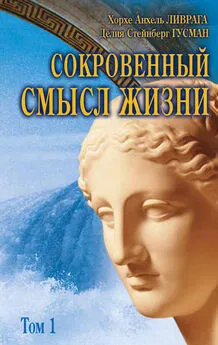

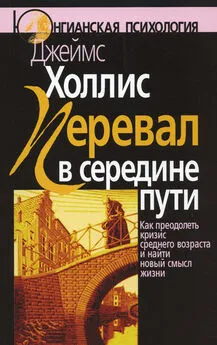
![Татьяна Мужицкая - Мне все льзя [О том, как найти свое призвание] [litres]](/books/1073266/tatyana-muzhickaya-mne-vse-lzya-o-tom-kak-najti-sv.webp)
